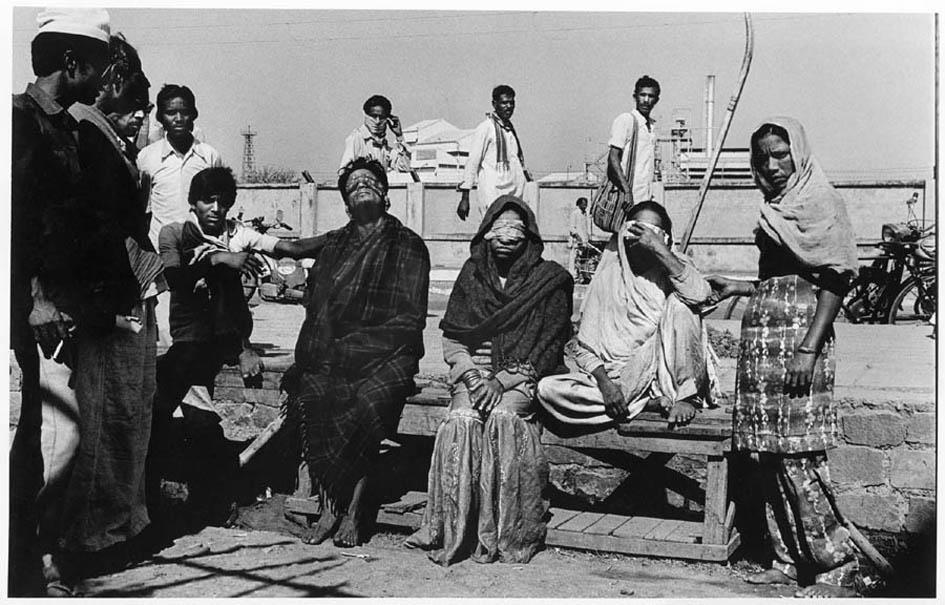Bodies Dumped Uncounted
After The Gas (Part 3.) Sathyu Saranghi, describing the situation just after the disaster, explains how Union Carbide and the government seemed to be colluding.
The dumping of dead bodies by the authorities, to downplay the scale of the disaster, were quickly common knowledge. Failing safety systems, poor maintenance, as well as faulty design and slack practices – all these pointed to the criminal negligence of Union Carbide and its management – but the release on insignicant bail of Warren Anderson, then chairman of Union Carbide, who visited Bhopal four days after the disaster, and was escorted out of the city under massive security the very same day, seemed to confirm that the government was colluding with the corporation.
We also were unsuccessful in stopping Operation Faith, the government’s plan, just days after the disaster, to let Union Carbide turn the MIC left in the other two unsafe tanks into pesticides. We had the testimony of scientists that MIC, the raw material used to manufacture Sevin pesticide, could safely be neutralised with caustic soda. However, we were few, and the government, despite all that had happened still preferred to repose its faith in Carbide’s tainted science.
We watched, helpless, as thousands and thousands of people left their homes again, fleeing a second time from the city before the factory could be restarted. A number of survivor activists we had befriended stayed behind with us to guard their neighbourhoods from thieves, including from policemen, who had begun to steal things from abandoned homes. Sitting round log fires through the winter nights, provided with wet rags for possible emergencies, we shared stories and ruminated in clichés about life, death and the meaning of it all.
No faith
Operation Faith kicked off with great fanfare. As pesticide production resumed in the factory, a government helicopter sprayed water from the sky, jute screens were placed above the factory walls and water tankers sprayed water along major streets. Survivors commented that the jute screens would not even stop beedi smoke, let alone any leaking gases, and wondered whether the poison gas would be co-operative enough to keep to the wet roads.
You can read the complete Bhopal Marathon publication online here



